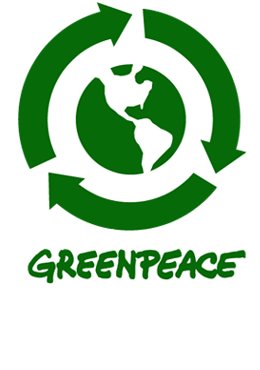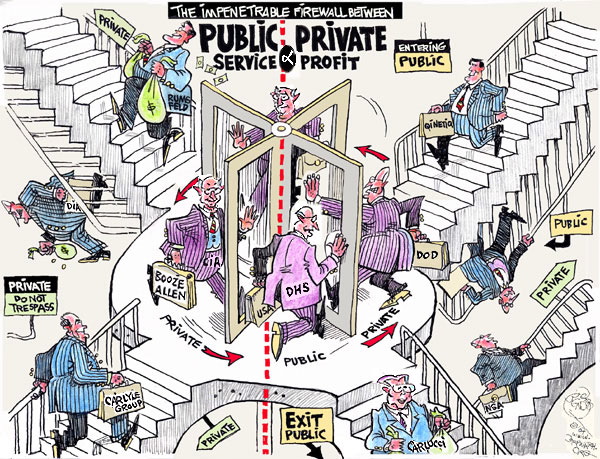Summary
Chapter 6 discusses the importance of interest groups and their extent of significance in the political process and world. Interest groups exist to make demands on the government and usually deal with ideological, public interest, foreign policy, government itself, as well as ethnic, religious, and racial issues and groups. Because of the many different opinions and interests of Americans, interest groups are made in order to advocate for their special issue. Interest group power can be affected by size, resources, cohesiveness, leadership, and techniques. This chapter also explains the reason PACs-political action committees- exist. Issues of PAC reforms have arisen due to unfairness, disclosure, and balance. Although some may view PACs as a beneficial aspect in the governmental society, many do not agree and feel the need to get rid of them as a whole. Finally, this chapter discusses the laws and regulations of interest groups in electoral democracy. The impact of the laws is debated and is often criticized for infringing on rights as freedom of speech and freedom of association.
faction- A term that founders used to refer to political parties and special interests or interest groups.
The conflict of many factions trying to support their own cause keeps balance on government.


pluralism-A theory of government that holds that open, multiple, and competing groups can check the asserted power by any one group.
Using multiple factions to check the power of other factions is one example of pluralism.


The American Medical Association and the United States Chamber of Commerce are examples of interest groups.
 |  |
movement- A large body of people interested in a common
issue, idea, or concern that is of continuing significance and who are
willing to take action. Movements seek to change attitudes or
institutions, not just policies.
One example of a movement would be Martin Luther King Jr.'s march, a violence-free demonstration hoping to change the attitude toward segregation, not just abolishing segregation.


open shop-A company with a labor agreement under which union membership cannot be required as a condition of employment.
If a worker is planning to enter a union membership, an open shop company isn't for them.

closed shop- A company with a labor agreement under which union membership can be a condition of employment.
Closed shop employees have the viable option to be a member of a union.

free rider- An individual who does not join a group
representing his or her interests yet receives the benefit of the
group's influence.
Someone who rides on a group for free, although it does not pertain to the person, is a free rider.
 |  |
North American Free Trade Agreement - An agreement signed by the governments of Canada, Mexico, and the United States. It was created in January 1, 1994, evolving from the Canada-United States Free Trade Agreement.
The North American Free Trade Agreement allowed Canada, United States, and Mexico to trade without barriers or regulations.

Single-Issue Group - A group that is involved in political campaigning on one essential policy area or idea.
An example of a Single-Issue Group is the Greedy 40% Extra group that protested against politician wage increase.

nongovernmental organization (NGO)- A nonprofit association or group operating outside of government that advocates and pursues policy objectives.
The International Committee of the Red Cross, a charity organization, is considered as a nongovernmental organization.
 |
Public Policy - course of action taken by the state with regard to a particular issue.
Public policy is often used by the public to judge the administration of states in terms of their decisions.


collective action- How groups form and organize to
pursue their goals or objectives, including how to get individuals and
groups to participate and cooperate. The term has many applications in
the various social sciences such as political science, sociology, and
economics.
With more people in the same interest group organizing a collective action, it is more influential and noticeable than a single member doing the same.

public choice- Synonymous with "collective action," it
specifically studies how government officials, politicians, and voters
respond to positive and negative incentives.
Even people dealing with politics have emotion, and the impact of their emotion on positive and negative topics is public choice.

Changes in the Federal Register for good for their respective interest groups is what interest groups want.

Litigation - civil action brought before a court of law in which a plaintiff, a party who claims to have received damages from a defendant's actions, seeks a legal or equitable remedy.
Litigation and lawsuits can be used interchangeably.

amicus curiae brief- Literally, a "friend of the court"
brief, filed by an individual or organization to present arguments in
addition to those presented by the immediate parties to a case.
The Amicus Curiae brief is a way to reveal a individual group by presenting its arguments.

lobbyist- A person who is employed by and acts for an organized interest group or corporation to try to influence policy decisions and positions in the executive and legislative branches.
The lobbyist tries to gain attention and interest of political officers to vie for their interest groups.
 |  |
lobbying- Engaging in activities aimed at influencing public officials, especially legislators, and the policies they enact.
Lobbyists are lobbying when they try to coerce government officials to support their cause.

revolving door- Employment cycle in which individuals
who work for governmental agencies that regulate interests eventually
end up working for interest groups of businesses with the same policy
concern.
Members of government agencies that favor the topic go through the revolving door if they join an interest group dealing with the topic.

issue network- Relationships among interest groups,
congressional committees and subcommittees, and the government agencies
that share a common policy concern.
The issue network is a large interest group made up of smaller interest groups, if they share similar concerns.

political action committee (PAC)- The political aim of
an interest group that is legally entitled to raise funds on a
voluntary basis from members, stockholders, or employees to contribute
funds to candidates or political parties.
PACS are very influential in the elections, as they are the primary funders for political candidates.
 |  |
Leadership PACS are like individual PACS, except that more committees are involved and an office-held PAC serves as a middle man.

bundling- A tactic in which PACs collect contributions from like-minded individuals (each limited to $2,000) and present them to a candidate or political party as a "bundle," thus increasing the PAC's influence.
By one PAC collecting more money from its contributors by bundling, the political candidates can see more influence in the higher paying PAC.

Electioneering - an organized effort which seeks to influence the decisionmaking process within a specific group.
soft money- Unlimited amounts of money that political
parties previously could raise for party- building purposes. Now
largely illegal except for limited contributions to state and local
parties for voter registration and get-out-the-vote efforts.
Although soft money used to be used very frequently due to its no limit, they have been banned by the BCRA, thanks to McCain.

quid pro quo- Something given with the expectation of receiving something in return.
Quid pro quo is a principle that every lobbyist, interest group, and PACS have in mind - to help political candidates out during elections, so that the candidates can help them once they get into office.

independent expenditures-The Supreme Court has ruled
that individuals, groups, and parties can spend unlimited amounts in
campaigns for or against candidates as long as they operate
independently from the candidates. When an individual, group, or party
does so, they are making an independent expenditure.
A political activist that does not operate with the political candidate can make independent expenditures for the candidate.
 |  |
issue advocacy- Unlimited and undisclosed spending by an
individual or group on communications that do not use words like ""vote
for" or "vote against," although much of this activity is actually
about electing or defeating candidates.
By avoiding the keyword that has to deal with "voting," 15 minutes of script editing can save you more than 15% on communications budget.

527 organization- A political group organized under section 527 of the IRS code that may accept and spend unlimited amounts of money on election activities so long as they are not spent on broadcast ads run in the last 30 days before a primary or 60 days before a general election in which a clearly identified candidate is referred to and a relevant electorate is targeted.
527 organizations have the power to spend lots of money on advertisements to sway people. However, this can only be done a certain time before elections.

McConnell vs. FEC - a case in which the United States Supreme Court upheld the constitutionality of most of the Bipartisan Campaign Reform Act 2002.
The McConnel vs FEC case agreed to the ban of soft money.

The iron triangle is the main policymaking institution in American politics.
What is...
the employment cycle in which individuals
who work for governmental agencies that regulate interests eventually
end up working for interest groups of businesses with the same policy
concern.
- _ _ _ _ _ _ _ _ _ _ _ _ _ .
An individual who does not join a group representing his or her interests yet receives the benefit of the group's influence.
- _ _ _ _ _ _ _ _ _ .
What is...
a large body of people interested in a common
issue, idea, or concern that is of continuing significance and who are
willing to take action. Movements seek to change attitudes or
institutions, not just policies.
- _ _ _ _ _ _ _ _
a political group organized under section 527 of the IRS code that may accept and spend unlimited amounts of money on election activities so long as they are not spent on broadcast ads run in the last 30 days before a primary or 60 days before a general election in which a clearly identified candidate is referred to and a relevant electorate is targeted.
- _ _ _ _ _ _ _ _ _ _ _ _ _ _ _
something given with the expectation of receiving something in return.
- _ _ _ _ _ _ _ _ _ _